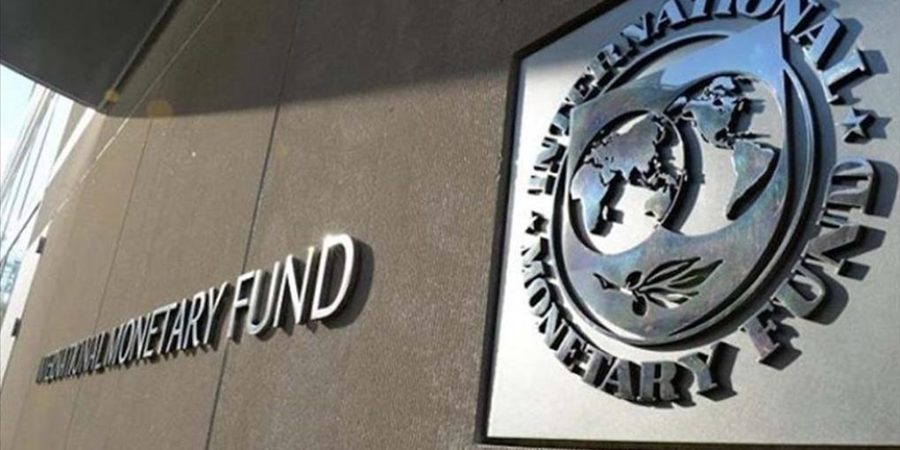The International Monetary Fund (IMF) has revised Nigeria’s economic growth forecast upward, projecting a Gross Domestic Product (GDP) growth of 3.4 per cent in 2025 and 3.2 per cent in 2026.
This comes as an economics and Managing Director of Financial Derivatives Company Ltd, Bismarck Rewane, emphasised the need for Nigeria to resolve its lingering power supply issues, saying continued outages pose a significant threat to national economic growth.
The revision by the IMF was contained in the IMF’s latest World Economic Outlook (WEO) released on Tuesday, titled “Global Economy: Tenuous Resilience amid Persistent Uncertainty.”
The latest prediction was a 0.4 percentage point uptick from the earlier three per cent growth forecast for 2025, and a 0.5 percentage point revision from the 2.7 per cent projection for 2026, as published in the April edition of the WEO.
However, the multilateral institution called for urgent structural and institutional reforms across Sub-Saharan Africa (SSA) as the region grapples with a complex mix of economic challenges.
Commenting on the SSA region, at the virtual unveiling of the WEO update on Tuesday, Division Chief, Research Department, Deniz Igan said: “Given the challenges Sub-Saharan Africa is facing, this is an important pillar for renewed growth in the region. There’s a need for both structural and institutional reforms. And what we mean there is to give some specific examples.
“Further, regional trade integration is one. More investment in infrastructure transportation is another one. And reform of state-owned enterprises, again, especially in the energy sector and transportation sector, are another priority.”
Igan also stressed the importance of equitable fiscal reforms, noting that efforts to raise revenues must avoid deepening inequality or triggering social unrest.
She advocated for the removal of poorly targeted tax exemptions, greater reliance on progressive income taxes, and the need to build public trust through transparent governance. According to her, engaging with stakeholders and sequencing reforms carefully would be essential to protect vulnerable groups and ensure broad-based support for policy changes.
“Now we understand that on the fiscal front, with high debt levels as well, there’s a need for mobilising revenues, and that can generate a sense of unfairness and inequity that could create social backlash.
“And on that front, our advice has been for the design of fiscal reforms that are equitable, that are efficient, and more specifically, there. What we have in mind is removing poorly targeted exemptions in the tax code, making use of progressive income taxes much more, and building trust and support, as we had covered in detail in our October 2024 report in one of our analytical chapters, by engaging with stakeholders, hearing what they need, improving governance and protecting the vulnerable, and at same time, bundling, sequencing and pacing different measures to make sure that the most vulnerable in the society are protected.”
On his part, Director, Research Department, IMF, Pierre-Olivier Gourinchas, reinforced the urgency of restoring fiscal space in many economies, warning that high debt levels and persistent deficits have left countries exposed to sudden shifts in global financial conditions. He emphasised that protecting central bank independence is critical to maintaining price stability and investor confidence.
He said: “In too many countries, the combination of high public debt and still elevated public deficits continues to be a cause for concern. The lack of fiscal space makes these countries especially vulnerable to a sudden tightening in financial conditions.
“Such tightening becomes even more likely if central bank independence a cornerstone of macroeconomic, monetary and financial stability- is undermined. Turning to policies, our recommendations continue to call for prudence and the need for improved collaboration.”
He reiterated that restoring stability in trade policy was essential to reducing policy uncertainty.
He added: “We urge all parties to settle trade disputes and agree on clear and predictable frameworks. Collective efforts should be made to restore and improve the global trading system.
“The need for predictable and stable rules extends to other areas of policymaking. It is important to reaffirm and preserve the principle of central bank independence.
“The evidence is overwhelming that independent central banks, with a narrow mandate to pursue price and economic stability, are essential to anchoring inflation expectations. “That central banks around the world achieved a successful ‘soft landing’ despite the recent surge in inflation owes a great deal to their independence and hard-earned credibility.
“Restoring fiscal space remains a priority for many countries. Even where new spending needs are emerging, efforts must be made to implement gradual and credible consolidation while protecting growth.
“Lastly as global growth remains tepid, more efforts must be made to increase long-term productivity through structural reforms, Gourinchas said.
Meanwhile, Rewane has emphasised the need for Nigeria to resolve its lingering power supply issues, saying continued outages pose a significant threat to national economic growth.
Rewane made the call on Tuesday when he appeared on a national television.
Rewane stressed the impact of sustained power outage on Nigeria’s GDP, especially in key economic hubs like Lagos and Ogun States.
“There is the opportunity cost, and there is a cost. The cost is that Lagos and Ogun States may constitute about 30% of Nigeria’s GDP. So, if you’re going to have one month of power outage, the impact is effectively one-twelfth of 30 percent—which is significant,” he said.
According to him, Nigeria’s power challenges are deeply rooted and multi-dimensional, citing issues such as cultural barriers, tariff imbalances, underinvestment, and debt forbearance within the sector.
“You cannot grow the economy with what we’ve seen today without a broad power solution. If there is a power outage in Nigeria, it must be resolved—no question. You can’t put a Band-Aid on it. It has to be done, and it has to be done now,” he added.
Speaking on economic performance, the expert stated that the economy recorded a 3.13 percent growth in the first quarter of the year.
He also observed shifts within the economy, noting that manufacturing’s contribution has declined, while agriculture has grown in visibility, and the service sector remains the primary driver of economic activity.
Chuks Okocha and Nume Ekeghe
Follow us on:



